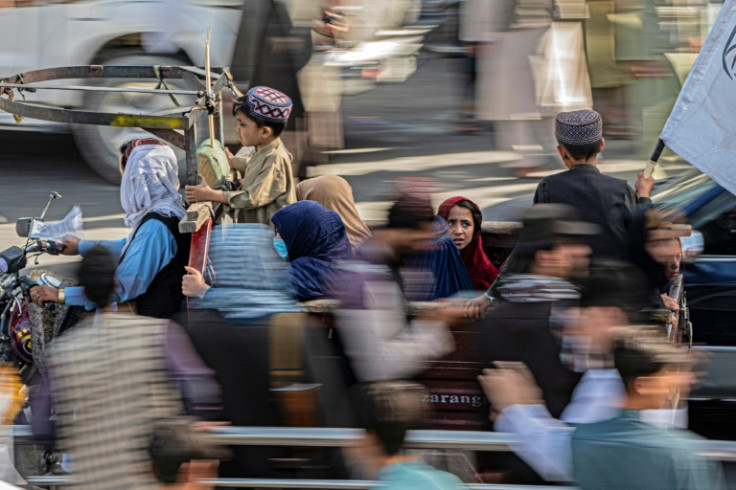Torture Death And Chaos Continues In Afghanistan
The UN has recorded a series of events conducted by the Taliban against both men and women in Afghanistan, including beatings, imprisonment and executions.

In 2021, after international forces withdrew from Afghanistan, the Taliban increased their power over Afghan citizens by obtaining control over the police and the intelligence agency.
While the extremist organisation is not recognised by authorities across the globe as the official leader of the state, the Taliban have once again clamped down and implemented firm orders of the full Sharia law.
The sharia law in Afghanistan criminalises women for taking any part in the employment and education sector. The rules also dictate that women must adhere to a strict dress code and limit the freedom of movement for all genders in Afghanistan.
For two years, the Taliban have continued to impose a set of policies of inequality, through more than 50 edicts, orders and restrictions that violate a series of laws related to international and fundamental human rights.
Following an investigation into the Taliban authorities, the UN has reported a huge 1,600 incidents of rights violations. Nearly half of the actions have been acts of torture and ill-treatment.
UN Rights Chief Volker Turk called the findings "harrowing" while recognising that the "long list of misogynistic restrictions" has become the new "norm" for Afghanistan residents.
Mr Turk also declared: "Denying women and girls' rights to participate in daily and public life not only denies them their human rights, it denies Afghanistan the benefit of the contributions they have to offer."
In the 19 months ending in July 2023, the UN Mission of Afghanistan (UNAMA), reported that 18 people had died while in the custody of police and in prison facilities.
The UNAMA spoke of the torture inflicted by the authorities, saying: "In attempts to extract confessions or other information, detainees were subjected to severe pain and suffering, through physical beatings, electric shocks, asphyxiation, stress positions and forced ingestion of water, as well as blindfolding and threats."
#Af-Pak Update: Pakistani citizen died in #Mazar_e_Sharif Prison #Afghanistan due to inhumane treatment of Afghan authorities.
— Af-Pak Monitor (@AfPak_monitor) September 20, 2023
As per reports, #Pakistani citizen Behram Khan was arrested over the accusation of failing to fulfill his role as a mediator in a financial exchange. pic.twitter.com/dfQnRscWId
Sources, on the ground in Afghanistan, have also told reporters that several civilians have fuelled a hunger strike, calling for international assistance and for "recognition of a gender apartheid".
Adela, whose name has been changed for safety reasons, was a teacher in Kabul prior to the Taliban takeover.
Adela spoke to reporters about her fear surrounding the extremists resurging in 2021.
The young woman said: "I was afraid we would go back to the past. I was afraid of the closing of girls' schools by the Taliban, of their preventing women from working and of their stoning women in public."
"Some of my worst fears have come true since then," she added.
Adela also took part in a protest that set out to contest the Taliban's treatment of women and girls. Remembering the women who faced torture while in police custody, Adela noted that the authorities "tried to stop us with electric shocks and pepper spray".
"I will never forget the severed head of Furozan... the burned face of Medina, the damaged eye of Marjan and the brutal arrest of [so many women]. I will not forget the thousands of women in Taliban prisons whose identities are still unknown," the young activist concluded.
On Wednesday 20 September, local media outlets reported that hostilities in Afghanistan, surrounding the persistent conflict between Armenia and Azerbaijan, have escalated.
The conflict between ethnic-Armenian forces and Azerbaijan, in the breakaway region of Nagorno-Karabakh, has been present for longer than three decades.
On Tuesday, 19 September, Azerbaijan launched a 24-hour "anti-terror" military offensive that saw the Karabakh forces agree to a surrender.
The warring sides have since declared a ceasefire.
Three years ago, the forces once again declared a ceasefire, but the pact was broken and the conflict continued.
UN Secretary-General Antonio Guterres called for access for humanitarian aid workers to the South Caucasus region, where there has been increased fighting.
© Copyright IBTimes 2024. All rights reserved.






